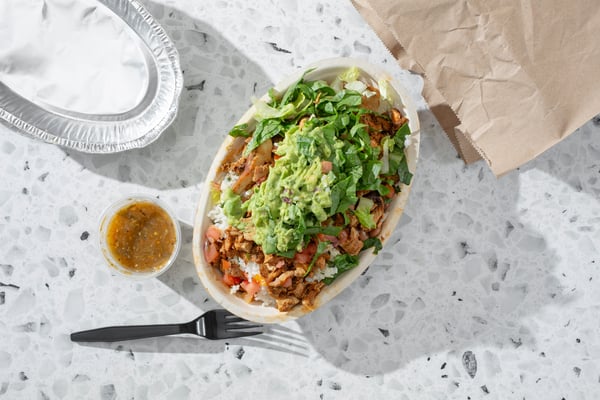Chipotle Mexican Grill (CMG +2.36%) dropped another blockbuster earnings report on investors this week. The company showed off a 27% revenue increase, comparable sales growth of 16.1%, and earnings jumped 52%. The market was turned off by weak guidance, sending the stock down 7%, but buried in the burrito-roller's earnings release was a curious item that most ignored.

The report mentioned that the Board of Directors approved an additional $100 million for share repurchases, on top of $98 million previously available for share repurchases from the year before.
Now, let's consider two things. The stock is trading for a P/E around 50, an eye-popping number for a restaurant chain, and is regularly knocked by analysts as overvalued. The stock is also pricey enough that the market found an excuse to sell following the release because the company's 16% same-store sales jump was slightly short of estimates.
Considering these circumstances, why on earth is management talking about share buybacks?
A word about buybacks
Share repurchases, or buybacks, are used by companies to inflate earnings per share without actually growing profits. It's a tool of large, stable, blue-chip companies to reward shareholders without having to grow the business.
If you're a shareholder in a large, highly profitable company with limited growth options such as McDonald's or Coca-Cola, then buybacks are great. They help boost the share price, and are arguably the best way for the company to spend cash to boost return on investment.
But for a juggernaut like Chipotle, who can't seem to grow its store base fast enough, buybacks are an entirely different story. Not only does the company have ample growth opportunities in which to invest, such as Chipotle U.S. and international, ShopHouse, and Pizzeria Locale, but also its shares are dearly priced, making buybacks a particularly inefficient way of delivering investor returns at this time. Let's take a closer look at the numbers.
Keep rolling
In 2014, Chipotle brought in $4.11 billion in total revenue, according to S&P Capital IQ. That's $2.47 million per restaurant, or $279,000 in net income based on the company's 11.3% net margin.
In 2014, the chain spent an average of $849,000 to build new restaurants, meaning the payback period, or time it takes to break even on the investment assuming average profitability from the new restaurants would be just a little more than three years. On a percentage basis, the return on investment of each new restaurant is a whopping 33%. And Chipotle expects new construction costs to fall slightly in 2015 due to the mix of locations and categories, while average restaurant sales are also likely to grow as comparable sales increase.
The approximately $198 million the board has authorized for share repurchases could fund the opening of 233 new restaurants, or more than Chipotle expects to open for all of 2015. Based on current profitability levels, that sum invested in new restaurants would deliver annual profits of $65 million once they reach maturity, increasing current net income by 14.6%.
With Chipotle's current market cap at $21 billion, spending the $198 million on share buybacks would boost earnings per share by less than 1%. Clearly then, opening new restaurants is the much better investment.
Don't toss your burritos just yet
The share repurchase authorization isn't a new thing for Chipotle. In 2014, it bought back $88 million worth of stock, however that number is down from $110 million in 2013 and $206 million in 2012 when the stock was significantly cheaper. As the valuation has gone up, management seems to be reining in the buybacks, which have been implemented in part to negate the effects of share-based compensations. Shares outstanding have held steady, fluctuating between 31 million-32 million for the past three years.
With the stock's P/E ratio having soared in the past couple years, management seems to be taking their foot off the buyback pedal. But ceasing buybacks altogether and using cash to open stores, or saving it for later investments such as share repurchases when the stock is cheaper, would be the better strategy.
Chipotle's got a good thing going, and investors have had a great ride. There is no need to reward them with buybacks. Spending on new restaurant openings will deliver the greater return over the long run.








